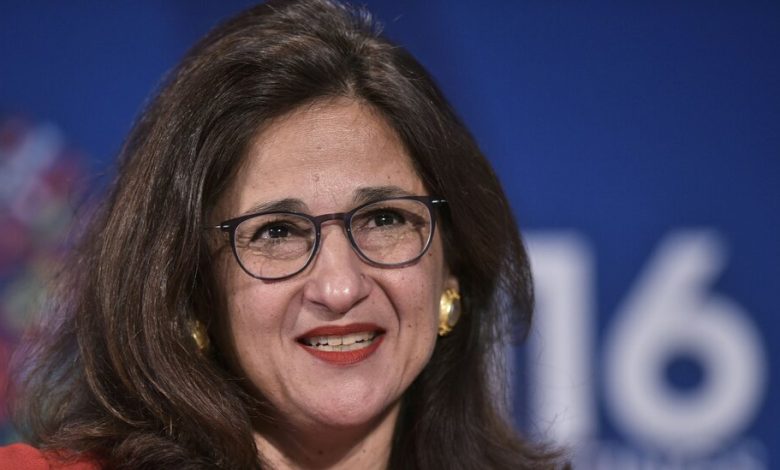Columbia Names Nemat Shafik as President, the First Woman to Lead the University

Columbia University announced on Wednesday that its new president would be Nemat Shafik, an economist who has served as president of the London School of Economics since 2017, and before that as deputy governor of the Bank of England.
The selection of Dr. Shafik, known as Minouche, marks the first time a woman has been named to lead the prestigious New York institution and follows the recent appointments of women to head top universities including Harvard, Dartmouth, M.I.T., the University of Pennsylvania and George Washington University.
She will assume the Columbia presidency in July, taking over from Lee C. Bollinger in the midst of a tumultuous time in the academy, with universities facing not only an upcoming Supreme Court decision on race-conscious admissions but also debates over free speech and the high cost of education, rankings and pay for teaching assistants.
In a letter to the Columbia community, the university’s board of trustees said it had found a “perfect candidate” to lead the university, calling Dr. Shafik, 60, a “brilliant and able global leader, a community builder and a pre-eminent economist who understands the academy and the world beyond it.”
Her international experience is notable. Born in Alexandria, Egypt, she has not only run the London School of Economics since 2017, but she has also served as vice president at the World Bank, deputy managing director of the International Monetary Fund and deputy governor of the Bank of England.
In its letter, the board said that what set her candidacy apart was her “unshakable confidence in the vital role institutions of higher education can and must play in solving the world’s most complex problems.”
Dr. Shafik’s upbringing was partly in the United States, where her family relocated during the 1960s for her father’s work. She attended schools in Florida, North Carolina and Georgia before receiving an undergraduate degree at the University of Massachusetts, Amherst.
She received a master’s degree from the London School of Economics and Political Science in 1986, followed by a Ph.D. in economics from St Antony’s College, Oxford University, in 1989.
Mr. Bollinger, who announced last year that he would be leaving the university, led the University of Michigan when the Supreme Court decided Grutter v. Bollinger, which upheld the right of colleges to engage in affirmative action in admissions. Grutter may be overturned in the Supreme Court cases currently pending against Harvard and the University of North Carolina.
Mr. Bollinger had presided over a significant expansion of the university, with the addition of its Manhattanville campus, the home of its new business school, as well as the creation of new institutes and initiatives, including the expansion of the university’s global presence.
